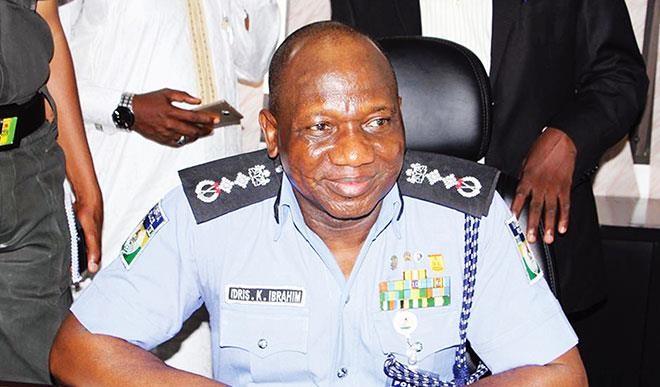AfriPol and the challenges before IGP Idris
Recently, the Inspector-General of Police, Ibrahim Kpotun Idris was appointed the second vice chairman of the newly formed Union Mechanism for African Police Cooperation (AfriPol) in Algiers, the Algerian capital. Although the union, which is an initiative of the Algerian police agency, is yet to be endorsed by the African Union (AU), it should be […]


Recently, the Inspector-General of Police, Ibrahim Kpotun Idris was appointed the second vice chairman of the newly formed Union Mechanism for African Police Cooperation (AfriPol) in Algiers, the Algerian capital.
Although the union, which is an initiative of the Algerian police agency, is yet to be endorsed by the African Union (AU), it should be applauded, sustained and nurtured to become a permanent tool for policing and security on the African continent. It is a brilliant innovation with multiple advantages.
A typical example of the benefits of international interface in policing is the one offered by the International Police Organisation (INTERPOL), a platform on which countries of the world have been cooperating in matters of crime prevention, tracking and arrest of criminals. The INTERPOL has been very useful in global policing through exchange of intelligence, arrest and deportation of criminals who, after committing crimes in one country, try to escape justice by running to another country for refuge. As far as African countries are concerned, the INTERPOL has been more or less an institution which activities are most pronounced among countries. However, the organisation has not been functional on matters of cooperation among countries on the continent. At best, African countries only come to play when they are expected to assist Europe and North America in the arrest and deportation of criminals traced to the continent. This is in spite of the ever growing imperatives for cooperation and synergy among police organisations on the continent.
In recent times, Africa has been witnessing an explosion of different forms of crime such as armed robbery, trafficking in drugs and persons, insurgency and smuggling across borders. There is no gainsaying that the increasing security challenges facing African countries would have been more effectively curtailed if their police agencies had a formal and vibrant cooperation.
IGP Idris aptly captured the essence and significance of the formation of (AfriPol) at a news conference he addressed soon after his appointment in Algiers. He said the organisation would be an effective tool in fighting cross border crimes, as well as enhancing internal security in African countries. He appealed to member countries to sustain the cooperation so that law abiding citizens in the region can go to bed with their eyes closed.
As Idris noted, it is time for various governments in Africa to, as a matter of urgency, set in motion, the process of legislations needed to make AfriPol a permanent and legal institution. According to him, such legislations will bolster the criminal justice system in the continent and redress the ugly trend where criminals escape to neighbouring countries without arrest.
Expectedly, as the most populous country in Africa and one with the biggest police force, Nigeria has the responsibility of leading the drive for a legal backing for the new organisation. The country can do this by leveraging on her influence in the African Union, where the decision will be tabled and discussed.
Perhaps, Nigeria has the greatest stake in the security of the continent, especially considering the magnitude of Boko Haram insurgency, other security concerns and the size of her borders. Also, this country is always in the lead when it comes to contributing contingents for peacekeeping missions in Africa. It is, therefore, imperative that Nigeria should show more than a passing interest in crime prevention and control on the continent. In other words, Nigeria is a critical stakeholder in security and policing, which is a course the AfriPol promises to advance.
It is said that to whom much is given, much is expected. Mr Ibrahim Idris should further perceive his appointment by the assembly of African police chiefs as a challenge to Nigeria and his personality. His colleagues at the Algiers confab would have taken into consideration, Nigeria’s critical position in the continent and reckoned that he could use his influence to propel the AfriPol project. Most certainly, the IGP would have also been deemed suitable for that job out of respect for his track records as a police officer with decades of experience from missions in Africa, Asia and North America.
It will be an addition of radiant colour to his feathers if at the end of his two-year term as vice chairman AfriPol gets the recognition, acceptance and legislation of the African Union.
Hassan Ahmad is a Sokoto-based public analyst.
